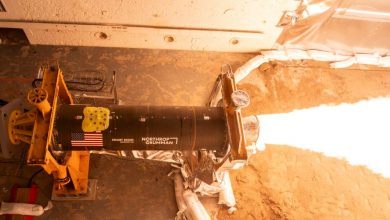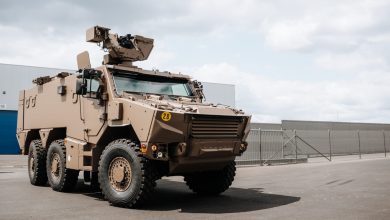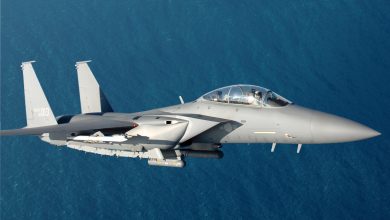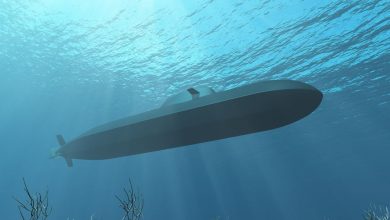Airbus says Eurofighter deal with Türkiye nearing finalization
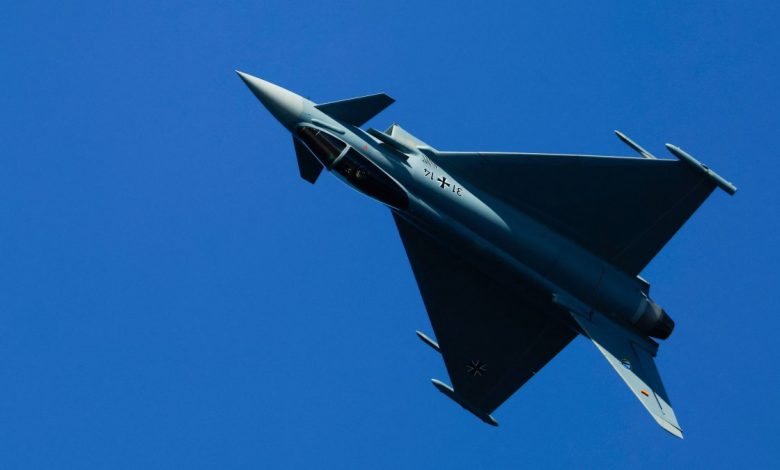
Negotiations on selling Eurofighter fighter jets to Türkiye are approaching the final stages, according to Airbus Defense and Space CEO Michael Schoellhorn, who said he’s very optimistic the talks with Ankara will conclude successfully soon.
Türkiye has been in talks since 2023 to purchase 40 Eurofighter Typhoons, which are built by a consortium of Germany, Britain, Italy and Spain, represented by Airbus, BAE Systems and Leonardo.
Germany initially opposed the sale but later reversed its position. Britain led negotiations on behalf of the consortium.
Schoellhorn said Germany’s past reservations have been overcome, and the new coalition government led by Chancellor Friedrich Merz has made clear it will not block the sale.
“Well, I think in terms of the German export control discussions, those are a thing of the past,” Schoellhorn told Anadolu Agency (AA) on Friday, referring to years of German domestic political debate.
“The German government has stated very clearly: we will not be blocking, we support the idea of delivering Eurofighters to Türkiye. So that, I think, is done,” Schoellhorn said.
This July, Britain signed a preliminary deal allowing Türkiye to operate the jets, which Ankara has sought to modernize its air fleet and strengthen defenses amid growing regional instability.
At the same time, the German government cleared the way for the delivery after sending a written confirmation to the Turkish government confirming that the export has been approved.
Schoellhorn said the talks are approaching final stages, with BAE Systems now leading negotiations with Ankara.
“Now it’s a commercial and technical discussion that takes place between Eurofighter – in this case led by BAE Systems, our partner in the Eurofighter consortium – and the Turkish state,” the CEO said.
Türkiye, which boasts NATO’s second-largest military force, has long sought to buy Western jets as part of its effort to bolster its air force capabilities.
The talks over Eurofighters stalled over the past few years as Germany’s previous Social Democrat-led coalition government had reservations about the sale, largely due to the opposition from its coalition partner, the Greens.
When Merz formed a new government in May, however, the policy shifted. His Conservatives emphasized the need to scale up Europe’s defense industry and strengthen NATO’s capabilities amid new geopolitical challenges.
Meanwhile, the Turkish government is also seeking to source secondhand Eurofighters from Qatar and Oman to meet its immediate needs.
President Recep Tayyip Erdoğan was on Friday cited as saying those talks were moving in a “positive direction,” as he returned from a Gulf tour that included visits to Kuwait, Qatar and Oman.
Long-term cooperation
Schoellhorn said the Eurofighter deal could establish a long-term partnership with Türkiye, as they scale up production and develop more advanced models with new technologies.
“Eurofighter is more than just an aircraft. There’s a system behind it. There’s a weapon set behind it. There is, in the future, connectivity that’s coming with it. There will be man-unmanned teaming solutions,” he said, referring to new technology that enables collaboration between a human pilot and an AI-controlled or autonomous unmanned aerial vehicle.
“So I think if Türkiye becomes part of the Eurofighter club, if I may say, there are a lot of user groups that we have where the users come together, they exchange ideas, you learn together, you learn faster. And we interface as an industry with these user groups so that we can provide solutions that the users really want. So it’s much more than just buying an aircraft,” Schoellhorn said.
Eurofighter jets are currently used by five European countries – the U.K., Germany, Italy, Spain and Austria – and four Gulf nations, including Saudi Arabia, Oman, Kuwait and Qatar.
Türkiye often faced arms embargoes in the past. That pushed it to significantly boost domestic capabilities and curb foreign dependence over the last two decades.
Today, it produces a wide range of vehicles and arms types domestically, including its own drones, missiles and naval vessels.
It is also developing its own fifth-generation fighter jet, Kaan. Its mass production is expected to start in 2028.
The warplane is sought to replace the Air Force’s aging F-16 fleet, which is planned to be phased out starting in the 2030s.
Schoellhorn, who served as a helicopter pilot in the German military before joining the defense industry, said he has had many opportunities throughout his career to visit Turkish industries and collaborate with Turkish partners. He said he was impressed by the successes of the Turkish aerospace and defense industries.
“I have learned by myself the capabilities and the skills of the Turkish industry in general. So that’s an asset to have. Now, Türkiye has invested a lot into defense and that’s being seen,” Schoellhorn said.
“We are actually already collaborating, for instance, with my Spanish part of Airbus. We are collaborating with Türkiye on the jet trainer, on the Hürjet that will likely be bought by Spain, and we are in discussions on how we can do that together,” he added.
He was referring to Spain’s plan to purchase the advanced jet trainer that is manufactured by Turkish Aerospace Industries (TAI).
‘Europe cannot solely depend on U.S.’
Schoellhorn, who has led Airbus Defense and Space since 2021, emphasized that European governments must increase defense spending and facilitate Europe-wide collaboration, as recent geopolitical developments have shown that Europe faces genuine threats and cannot rely exclusively on the U.S. for its defense and security.
“I think the European governments have realized in what situation Europe is, security-wise. I think they have also realized that they cannot solely depend on the U.S.,” he said. “The U.S. might have to do something else, so Europe needs to ramp it up. And that’s happening.”
He noted that defense spending and financial resources for the industry have increased in recent years, but emphasized that a more strategic approach and coordinated policies are still needed.
“When it comes to agreeing on what the strategic priorities are, what should the money go to first? Is there a plan behind it? I think there is still discussion needed. Because obviously, we can’t do everything in a few years that was not done in 30 years. But I think we are on a good track.”
The CEO also expressed hope for closer cooperation between European and Turkish defense industries, which has been limited in recent years due to political differences and objections from several EU members – specifically Greece and the Greek Cypriot administration – to including Türkiye in joint EU defense procurement programs.
“Industry is not the one to decide what the politicians should deal with among themselves. I think these should be resolved by discussion,” Schoellhorn said. “Türkiye is not part of the EU, but Türkiye is a member of NATO. And as such, there should be a way and a route for collaboration.”
Source: Daily Sabah


